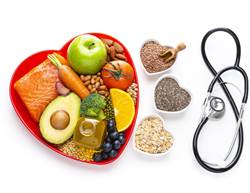The debate over the health benefits of eggs has taken a confusing new turn following the release of a study that says eating even a portion of a whole egg increases your risk of dying young.
Published in PLOS Medicine, the findings suggest that people who consume an additional 300mg of cholesterol a day – about three eggs a week – are 19% more likely to die over the next 16 years.
However, just last year a large Harvard analysis of 215,000 people found that eating one egg per day was not associated with an increased risk of cardiovascular disease.
So what is an egg lover supposed to believe?
Accredited Practising Dietician and editor of Australian Healthy Food Guide, Brooke Delfino, notes: “Understandably, news headlines like this can cause anxiety and confusion for people, and eggs have long been a food that goes in and out of favour in relation to heart health.
“The nature of the study is observational, which means it’s hard to draw a definite conclusion. It’s also near impossible to show cause and effect of one single food or nutrient leading to a specific heath outcome because so many other factors come into play (such as overall diet, exercise, age and family history), which can be difficult to control in this type of study.”
Numerous other health experts and researchers agree.
The British Heart Foundation said: “In recent years the consensus from experts has been that although eggs contain cholesterol, it’s saturated fat rather than cholesterol that really affects the cholesterol levels in our blood, so it’s fine to eat eggs as part of a healthy diet."
Dr Walter Willett, a professor of medicine at Harvard Medical School, said the new study results were problematic because they only asked people once about their egg consumption, then followed them for many years without checking to see if their diet had changed.
“The conclusions of this study are overblown,” noted Ada Garcia, a senior lecturer in public health nutrition at the University of Glasgow, Scotland. “Blaming eggs alone for an increased risk of cardiovascular disease is a simplistic and reductionist approach to the concept of diet and disease prevention.”
For healthy Australians, the Australian Heart Foundation recommends no limit to the amount of eggs that you can eat per week.
Nutritional manager and dietitian Beth Meertens told news.com.au the only caveat is: “For people who suffer from high cholesterol, Type 2 Diabetes or heart disease, we recommend fewer than seven eggs per week as evidence suggests that eating more eggs may increase your risks for heart disease and stroke.”
The most important thing to remember is that a healthy diet is a well-rounded one.
“Diet variety is key, and this means enjoying a wide range of foods from all the different food groups," Delfino said. "Eggs can absolutely stay on the menu, and this advice is backed by key health bodies, such as the Heart Foundation, as well as the Australian Dietary Guidelines.
“Unless you have an allergy or intolerance, there is no need to cut out single foods or food groups from your diet. Instead, focus on eating a variety of foods, especially fruits, vegetables, nuts, seeds, whole grains, oily fish and olive oil for heart health.”










